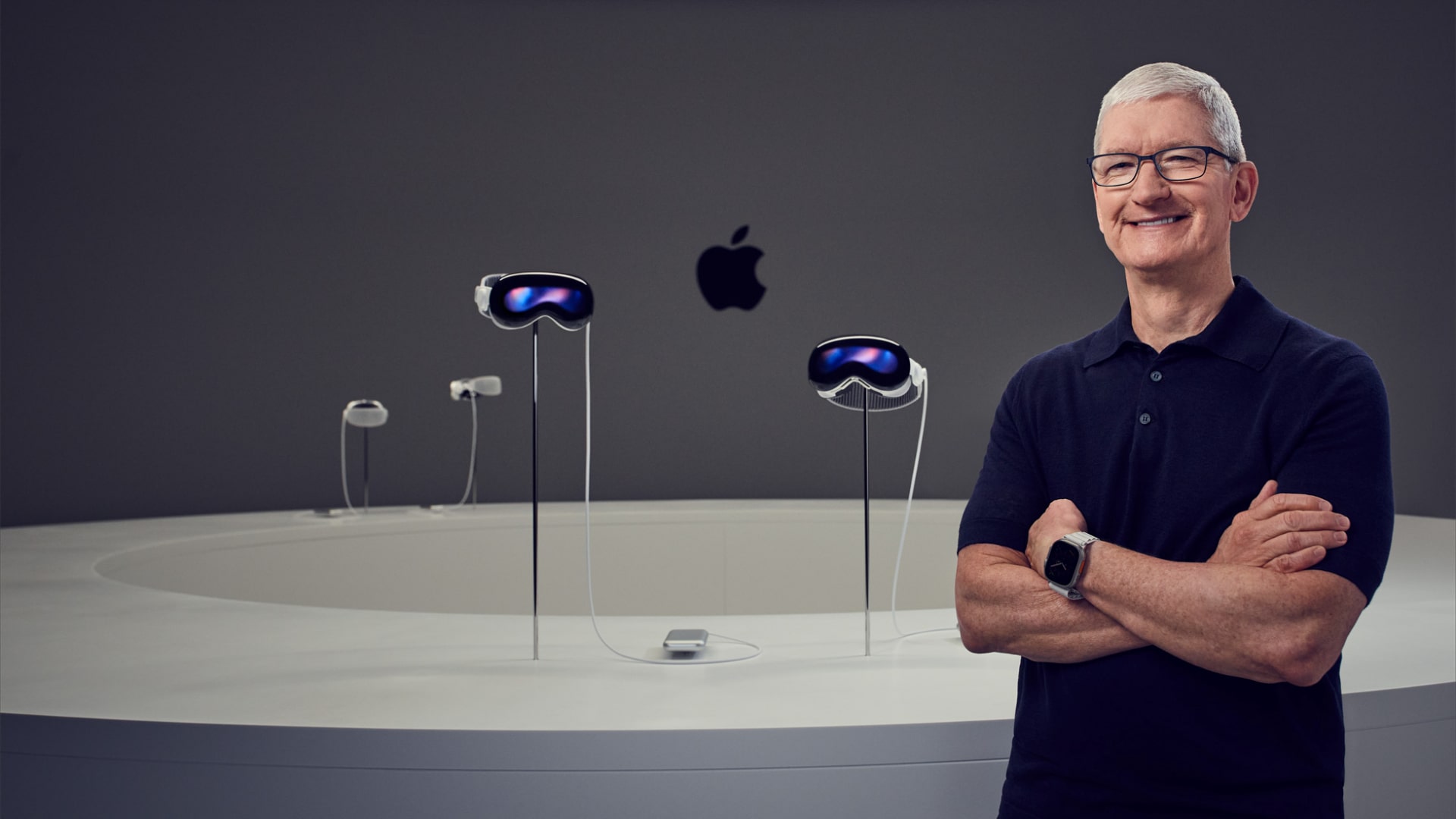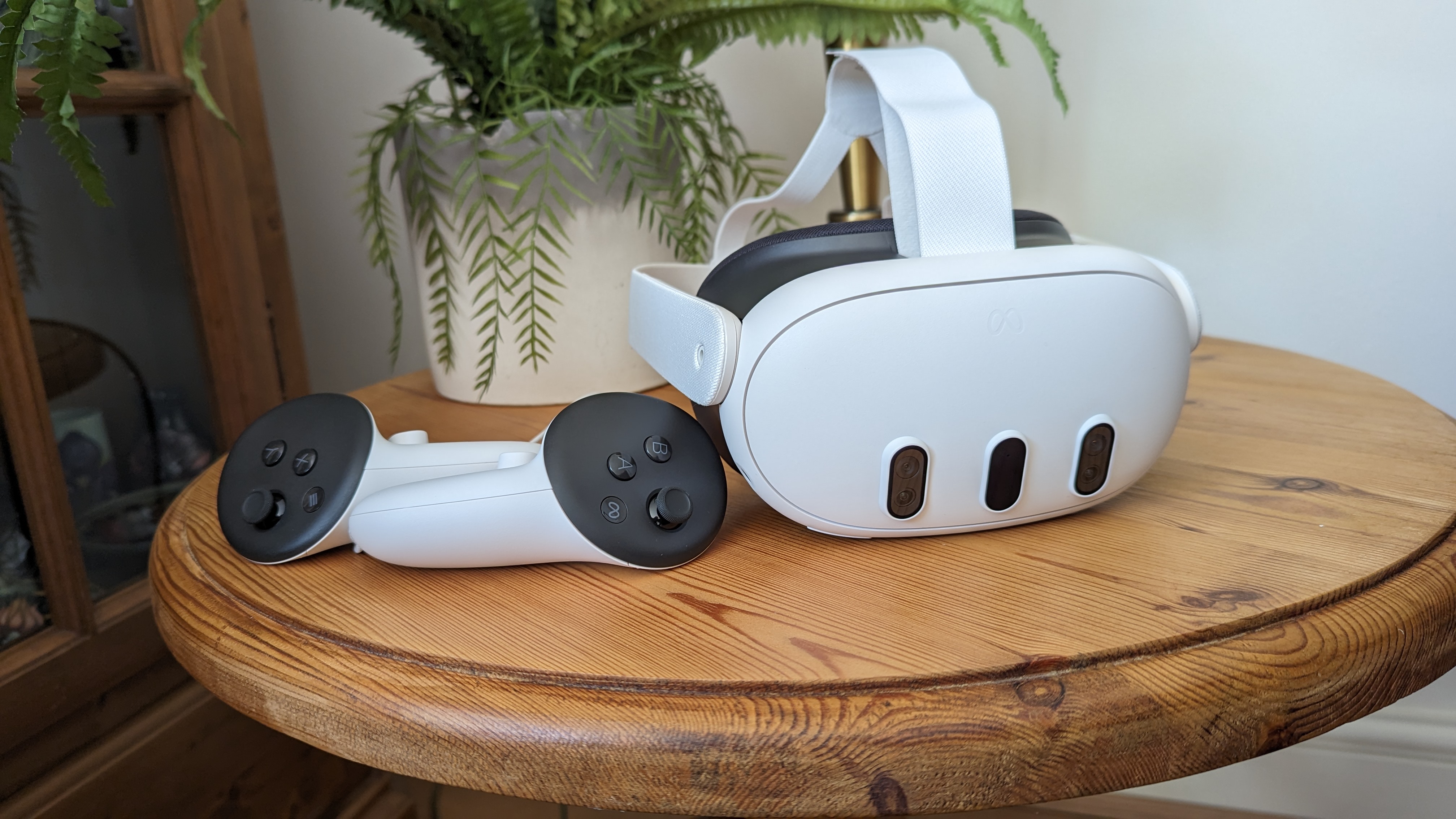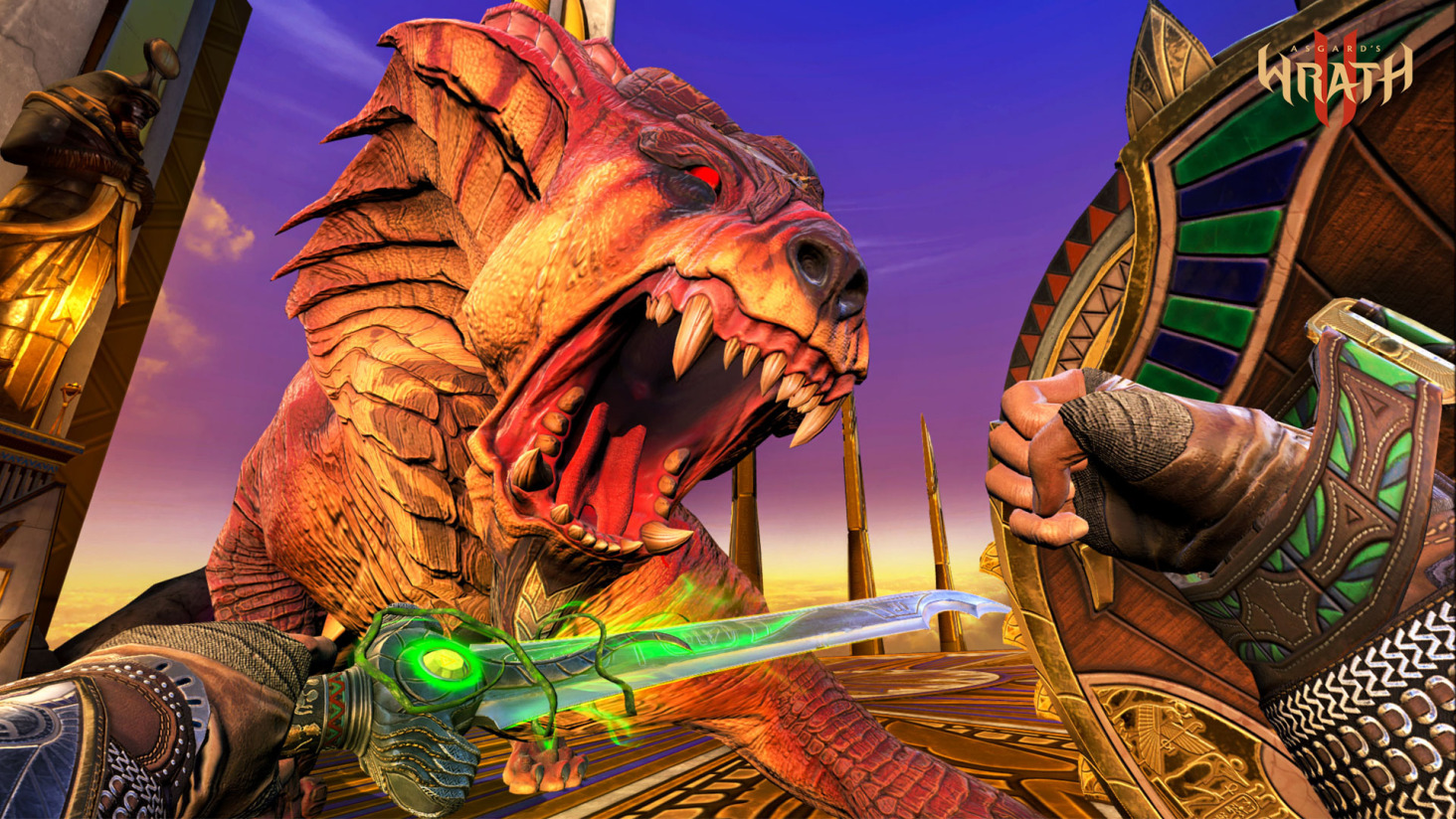The Apple Vision Pro is finally getting the VR games it badly needs, but is it too late?
What If... the Vision Pro had launched with VR games?

Sign up for breaking news, reviews, opinion, top tech deals, and more.
You are now subscribed
Your newsletter sign-up was successful
Three months after a launch that saw the device heralded as the future of XR, only for it to fade away from the public consciousness, the Apple Vision Pro is starting to get the VR software it desperately needs. But it feels almost too little, too late.
Three titles are ports of popular VR games from other platforms, with Demeo (a virtual tabletop fantasy game with engaging turn-based combat and multiplayer features), Job Simulator, and Vacation Simulator (two humorous virtual sandboxes). The other is What If…?, an immersive story based on Marvel's Disney Plus show of the same name. In the game, you use hand-tracking to perform Doctor Strange-like magical spells to save the Marvel multiverse.
Had these titles (and a few more) been available on the Apple headset at launch, then it would have avoided a major criticism that the device is simply a wearable iPad – as many of its spatial computing abilities are simply iPad app ports. These titles, on the other hand, are bonafide VR games that give Apple Vision Pro owners an experience they won’t find on other Apple hardware.
But this isn’t February 2, 2024. This is late May, three months after launch. The hype has died down, and interest in the Vision Pro has cratered.
Things may pick up again when that long-rumored global launch arrives – perhaps we’ll hear more about it at WWDC 2024 – though I have a feeling that Apple’s fumbled first launch will be tough to recover from. Do you want to spend $3,500 (around £2,800 / AU$5,300) on a device you’ve seen thousands of people let gather dust on their shelves?
Which begs the question – why didn’t Apple wait until the Vision Pro had significantly better VR game support, which could have kept owners engaged?
Too long to wait
The short answer is because Apple would have been waiting a while, unless it threw money at the problem. I’ve been speaking to VR game developers from various studios, and they all explained that porting a Meta Quest 3 title over to the Apple Vision Pro isn’t like making a PlayStation 5 game playable on an Xbox Series X. The performance imbalance plays a small part (as software needs to be updated with higher-res graphics, so it doesn’t look awful on the sharper Vision Pro displays), but the biggest issue is the lack of controllers.
Sign up for breaking news, reviews, opinion, top tech deals, and more.
Titles like Demeo, and Vacation Simulator offer hand-tracking support already, so switching them over is less challenging. Games built from the ground up to rely on handsets would need to be entirely reworked and tested, as losing all those possible button inputs drastically changes the way a player can interact with the virtual world.
Add on the fact that the Vision Pro is designed to be used for more static seated experiences, rather than active standing experiences which many VR games are based around, and I’ve been told that to make a quality product VR game, creators feel they need to make something bespoke.

This takes a lot more time and resources than porting over an existing title, and that leads to the chicken and the egg conundrum facing Apple’s headset. While these titles would undoubtedly make the Vision Pro a more appealing prospect for people who have yet to buy in, is the Vision Pro already popular enough, or able to sell well enough off the back of these app launches, to justify the cost of making the unique VR experiences?
Moreover, the potential revenue may not be large enough to justify making a Vision Pro game rather than a Quest and/or PCVR compatible game. These are platforms with significantly larger active user bases, which would therefore give VR game creators a more likely return on their investment.
A large, well-established studio might be willing to take a punt, but VR game developers are typically indie devs – smaller teams (or individuals) who don’t have the financial or technical backing of massive publishers like EA, Activision Blizzard, or Ubisoft. Taking a punt on a Vision Pro exclusive that flops could literally sink an indie company.
The potential solution here would be for Apple to pay for VR game and app creators to create exclusive Vision Pro content. Because of this guaranteed revenue, the risk of creating a Vision Pro exclusive goes out the window. Had this come before launch, Apple could have had Vision Pro-exclusive games ready to go for the hardware's release.

It’s not like Apple – one of the biggest companies in the world – lacks the resources to fund a handful of projects, though if the plan had failed, Apple’s investors wouldn’t be pleased it had doubled down on a losing streak. The flip side is if Apple had doubled down, the Vision Pro might have been a massive success.
As it stands, however, it feels like Apple's putting its eggs in the Apple Vision Pro 2's basket. It's waiting for more of these established, easy-to-port titles to release – your Demeos and Job Simulators – to make their way over, alongside a few unique and experimental titles like the What If… game from more established brands.
This unfortunately feels like it's leaving the old model out to dry, as it's too late for this slow drip of ports to reignite interest in the Apple Vision Pro. But when its successor eventually rolls around, it might finally have the software support the Vision Pro platform needed all along.
YOU MIGHT ALSO LIKE...

Hamish is a Senior Staff Writer for TechRadar and you’ll see his name appearing on articles across nearly every topic on the site from smart home deals to speaker reviews to graphics card news and everything in between. He uses his broad range of knowledge to help explain the latest gadgets and if they’re a must-buy or a fad fueled by hype. Though his specialty is writing about everything going on in the world of virtual reality and augmented reality.
